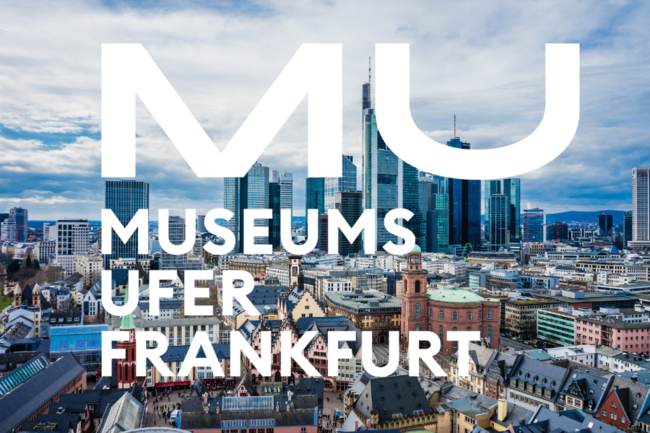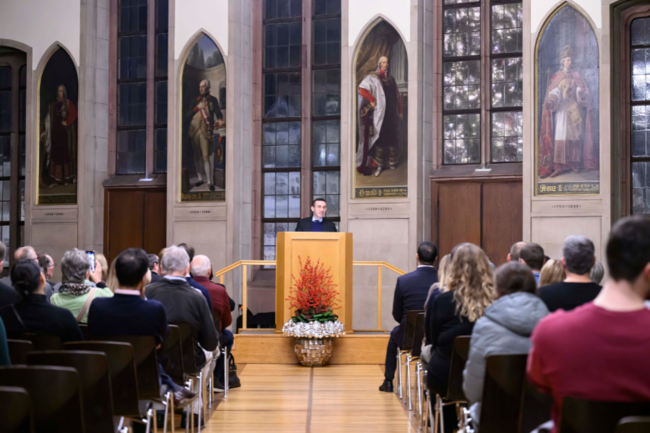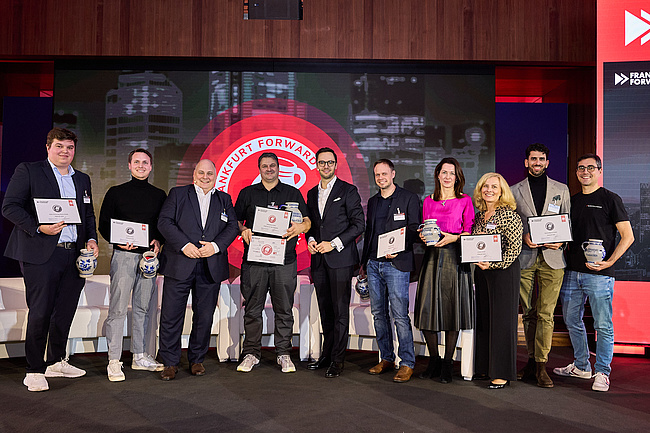In May 2019, the zoo opened the new facility for Humboldt penguins. A year later, three pairs were already breeding. The result: five fluffy offspring in mid-June. And there has been even more growth: 20 Humboldt penguins from the Luisenpark in Mannheim have found a temporary home in Frankfurt. After nine days of acclimatisation, the new arrivals will share the facility with the Frankfurt group from today.
The pair that first took up breeding (POCKE and POSI, both 4 years old) are already experienced. They have already raised chicks in the zoo of Landau in the Palatinate. No wonder that they also routinely went into action in Frankfurt. In the middle of June two chicks hatched. The second pair (TEDDY (9) and STURMI (3), also from Landau), came together to breed only in Frankfurt. Their chick hatched only a few days later. GITTE (2) from ZooParc de Beauval in France and NEMO (2) from NaturZoo Rheine also found each other quickly. With two years they are still relatively young. Nevertheless, the first attempt was crowned with success, or better, with two chicks. For several weeks the young birds were cared for by their parents in the nesting holes. Now they have grown considerably, have put on their brownish juvenile plumage after the first moult and can be seen on the grounds for a few days.
"I am very pleased that the new penguin enclosure has delighted the visitors and that the animals feel so comfortable that they have directly provided for offspring. This shows us that the careful planning and the effort have paid off. As was done with the penguin enclosure and the Ukumari Land, which opened in 2013, it must now continue: with generously designed, well thought-out and modern enclosures that enable optimal husbandry. At the facilities, the animals should be able to live in a species-appropriate manner and allow us humans to have intensive encounters," says Dr. Ina Hartwig, Head of Department for Cultural and Scientific Affairs.
And there is more news from the penguins: On August 19, a group of 20 Humboldt penguins moved in from the Luisenpark in Mannheim. The Frankfurt penguin flock has thus grown in one fell swoop from 30 to 50 animals. But only for a limited time. The Humboldt penguins from Mannheim are temporarily housed here while their new facility is being built.
This is possible because the new Frankfurt facility is large enough, as it is designed for up to 80 animals. This has many advantages for the Mannheim penguin group: they had a short travel distance, can stay together as a group and do not have to get used to new climate conditions. "We are very happy that we can help our colleagues in Mannheim. Such cooperations between zoos must definitely always be considered when designing new facilities and enclosures. For a functioning animal management - especially in the context of conservation breeding programs - it is enormously important that sufficient spatial capacities are available. Only through skilful management and intensive cooperation between zoos can we keep our animals in the best possible way and make our contribution to species conservation in the long term," stresses Zoo Director Dr Casares.
Worth knowing about Humboldt penguins
Humboldt penguins (Spheniscus humboldti) belong to the genus of spectacled penguins (Spheniscus). Like these, they wear a characteristic facial mask. The black dots on the brightly feathered belly are unique to each animal. The 60 to 70 centimetre tall dive hunters go hunting for sardines and anchovies in the Humboldt Current off the coasts of Chile and Peru. Humboldt penguins live socially in colonies and form lifelong monogamous partnerships. On coastal islands they usually raise two chicks. Their natural enemies include killer whales, sea lions and Dominican gulls. The most serious threat, however, comes from humans. Overfishing and pollution of the seas deprive many penguin species of their livelihood. For this reason, the Red List of the World Conservation Union IUCN classifies Humboldt penguins as endangered. The population trend in the wild is clearly negative.
Frankfurt Zoo supports the association Sphenisco - Protection of the Humboldt Penguin. This association works together with conservationists and scientists, especially in Chile and Peru, to protect the habitat of the Humboldt penguins and thus the population in situ. Their priority is to protect breeding colonies and the marine areas surrounding them. Care is taken to design conservation measures in harmony with the concerns of the local population. Sphenisco therefore promotes sustainable projects, e.g. in fisheries or tourism.













